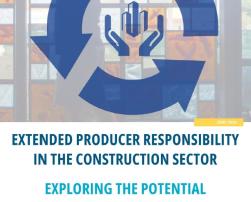
The building sector is adapting to climate change by significantly reducing CO2 emissions and adopting cleaner energy solutions, while public support for stronger climate action remains robust.

The building sector is adapting to climate change by significantly reducing CO2 emissions and adopting cleaner energy solutions, while public support for stronger climate action remains robust.

Aimed at self-builders, tradespeople and those interested in developing Passivhaus projects, these free workshops will offer a diverse and interactive programme of talks, Q&A sessions and live guided tours.

Buildings, major greenhouse gas emitters, need modernisation with technologies like heat pumps and geothermal energy to improve efficiency and adapt to extreme weather.

Historic England’s Advice Note provides guidelines for adapting historic buildings to improve energy efficiency and reduce carbon emissions while preserving their heritage.
Dynamic decarbonisation pathways framework: Integrating technological, social, and policy innovations for sustainable renovations in the built environment.

The 2024 UK Passivhaus Conference is the must-attend Passivhaus event of the year, dedicated to driving the movement towards healthier, net-zero neighbourhoods.

This study evaluates the operational carbon footprint of Adohi Hall, finding that cleaner energy sources and the campus's combined heat and power plant significantly reduce emissions by up to 21%.

A practical introduction to EasyPH with Gergina Radeva from the Passive House Institute

Prior to the UK Passivhaus Conference 2024, join for an exclusive detailed case study Passivhaus Masterclass on the Schwarzman Centre for the Humanities.

Join online to get an overview of the SCCALE 20 30 50 tools and methodology